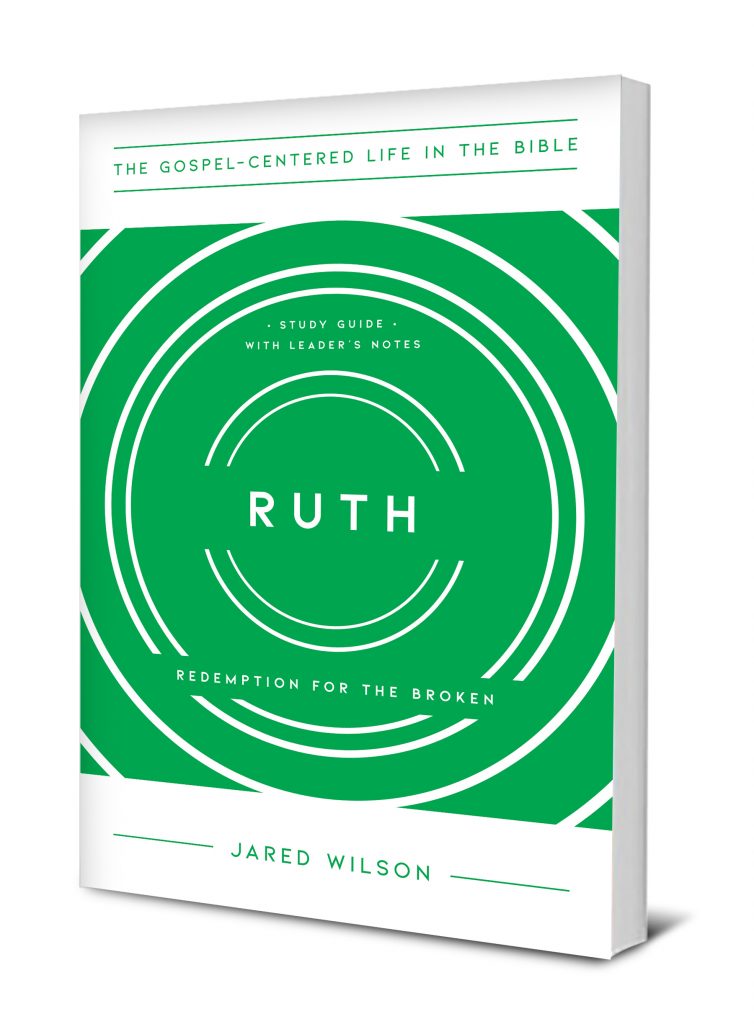Boaz took Ruth, and she became his wife. And he went in to her, and the Lord gave her conception, and she bore a son.
Ruth 4:13
Yes, the story of Ruth is a love story. But not the way you might think. The plot begins with the loving commitment between Naomi and Ruth. It continues through the loving commitment between Ruth and Boaz. But the real beginning—and the true end—is in God’s love for his children.
There is a lot going on in this little book, more than the eyes can see. Certainly more than Ruth’s and Boaz’s eyes could see, at least from the vantage point of their immediate circumstances. God had something extraordinarily wonderful planned for this unlikely romance. God had something plotted in his mind from eternity past stretching into eternity future, and that plot line must run straight through this old Jewish man marrying this young Moabite woman in the middle of a land fraught with violence and perversion.
Making a Way
The good news is that the Lord has a way of making a way where there is no way. That the Lord gave Ruth conception with Boaz is to imply she did not have it with Mahlon. I wonder if she ever wondered why she could not bear children with her previous husband. She probably could not foresee then that God meant to do anything redemptive through that situation. Maybe she thought her life would always be that way—that she would be barren forever. When her husband died, I suspect the temptation to doubt the care of God especially kicked in.
The image of Naomi holding the child on her lap and becoming his nurse is exceedingly beautiful. The book began with Naomi as a burdened, bitter woman. She felt completely undone and without hope. I picture tears on her cheeks as she ponders those dark days while her grandson coos and claps his little babyfatted fists together under her beaming smile.
The women say to Naomi, “Blessed be the Lord, who has not left you this day without a redeemer, and may his name be renowned in Israel!” (4:14). They don’t even know how right they are. The narrator does, however. Because this little baby’s name is Obed. And Obed just happens to grow up to father a son named Jesse. And Jesse just happens to grow up to father a son named David.
Nothing is Coincidence
And of course, none of this “just happens.” It is the Storyteller’s grand vision all along: an unlikely romance in Bethlehem, which produces a lineage that leads to David, whose kingdom and own lineage makes a providential beeline to the Son of David, the one true King of Israel and the world, Jesus the Messiah.
Trace the line. If you think the inclusion of a poor, widowed Moabite in Jesus’s genealogy is scandalous, consider Boaz’s own ancestor, Tamar, who through trickery seduced Judah. But you don’t have to go that far back to get to the scandal. Boaz’s own mother was Rahab, six times referred to as a prostitute in the Scriptures. But this prostitute was redeemed. She too was redeemed to perpetuate the name. The name of Boaz. And the name of Jesus.
Keep going in that genealogy in Matthew. We have Tamar the seductress, Rahab the whore, Ruth the Moabite, Bathsheba the exploited victim of King David’s lust. What’s remarkable, first, is that women are included in Jesus’s genealogy at all! This is outside the Jewish custom, but Matthew includes them. And not just any women, but women with a past, women with a stigma, women with “questions” hanging over them—and men of blatant sin right alongside some of them.
All the Sordid Details
And just as Judges is in the background of Ruth, and just as there is some sordid history in the ancestral background of Ruth and Boaz, the sins we tend to deem dirtier than all others sit there in the background of the Christmas story.
Do you know what this means? It means there is no sin so great that God cannot forgive, and there is no brokenness so big that God cannot redeem. There is no sinner, no failure, no victim, no outsider so far gone that the sovereign hand of the Lord cannot reach and rescue and even revise the story of their life. Jesus’s genealogy shows us that God can redeem anyone.
But tracing Ruth and Boaz’s strange, quirky relationship all the way to the Messiah also reminds us that while the Lord is writing our story, we ought not to forget he’s the real star!
We Are All Like Ruth
Spiritually speaking, we’re all poor, widowed Moabites. We have nothing to offer God. We have no hope in human capital for our own redemption. Religiously, spiritually, we are unclean and unworthy. And yet the Lord in his kindness comes to dignify sinners like us. He provides his own flesh and blood by dying on the cross to atone for our sins. We fall to the forces of wickedness and conspire with them, but he conquers them. He satisfies the wrath of God, and we are united to him in a strange, unlikely marriage of eternal perpetuity. Why? That the riches of his grace might be known and magnified.
Like Ruth, we cannot manage this with what we’ve got. We cannot pull ourselves up by our bootstraps. We don’t have what it takes. Even if we white-knuckled our way to obedience, we couldn’t climb out of the hole of unrighteousness we find ourselves in. The law? He is the first kinsman. He says, “I cannot redeem you.” The true and better kinsman redeemer is Christ. He says, “See, I have won the hand of my church.”
This is good news, friend. Whatever you’re clinging to that’s holding you back from Christ, you can let go. He will hold you fast. Whatever you’re falling prey to, you can conquer. He will strengthen you. Whatever you’re engaging in that is not of God, you can repent of it. His grace is sufficient. We are redeemed (thank God!) to perpetuate his name (praise God!).
Excerpted from Ruth: Redemption for the Broken © 2019 by Jared C. Wilson. May not be reproduced without prior written permission.
Photo by Hikmet Çolak on Unsplash.






